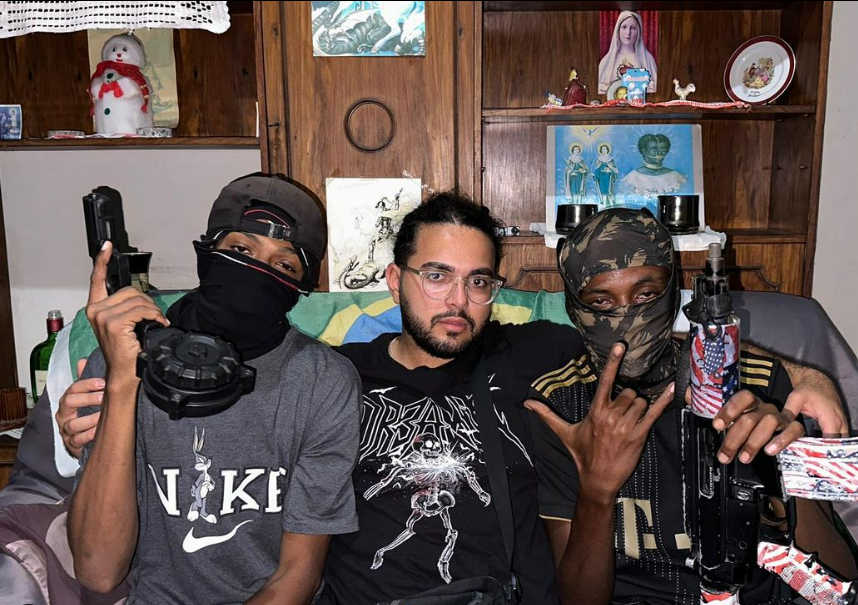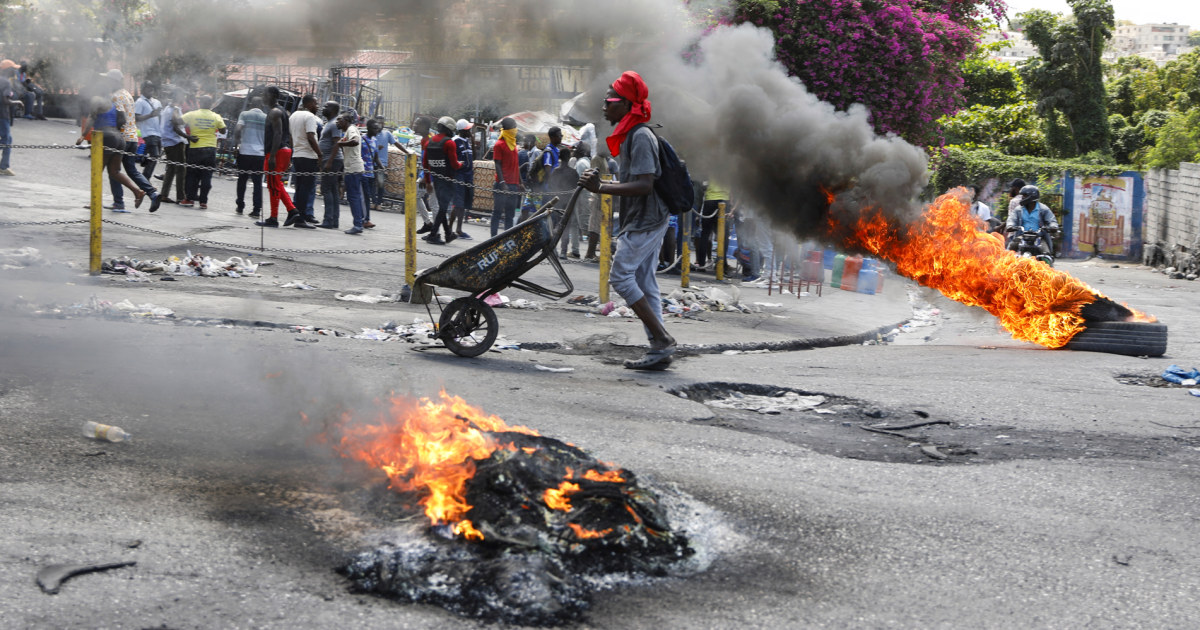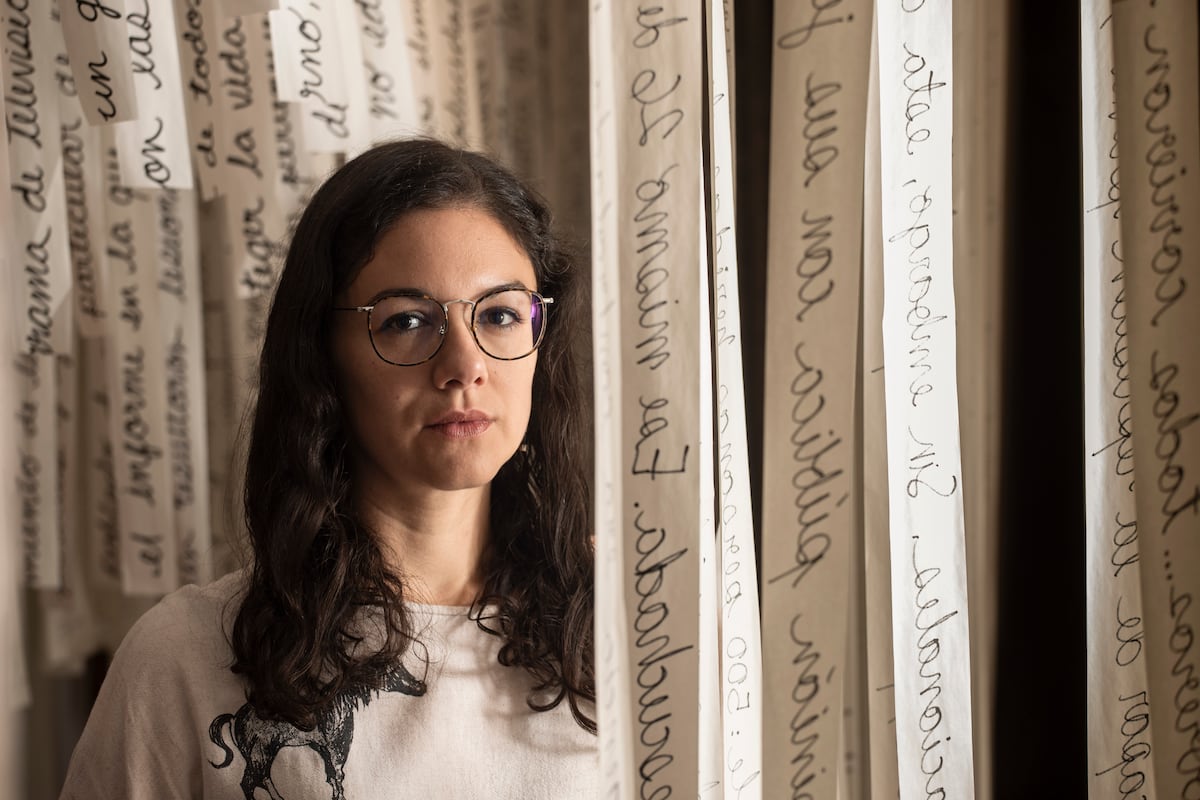By Evens Sanon and Dánica Coto -
The Associated Press
PORT-AU-PRINCE, Haiti (AP) - You're in luck, US officials told him.
"You are going to see your family."
Authorities were shouting numbers corresponding to tickets similar to those in a raffle, which had been given to Haitian migrants after they were detained after crossing the border into Texas.
As another number was called, a scruffy new immigrant stood up.
"Everyone was happy," recalls Jhon Celestin.
But I was not happy.
I realized it was a lie. "
The prize was a one-way trip to the place they had wanted to escape from.
And that's how Celestin arrived in Haiti aboard the last flight on Wednesday to the capital, Port-au-Prince, a city
the 38-year-old left three years ago in search of a higher-paying job to help support his family.
He is among the roughly 2,000 migrants the United States expelled to Haiti this week via more than 17 flights, with more scheduled for the next few days.
Staying in Haiti is not an option for many of them.
Like Celestin, they plan to flee their country again as soon as they can.
Jean Charles Celestin (right) carries the luggage of his cousin Jhon Celestin (left), his wife Delta De Leon, and their daughter Chloe, in Port-au-Prince, Haiti, on Wednesday, Sept. 22, 2021.
It had stopped drizzling when Celestin left the airport and took to the dusty and smoky streets, with a bag in one hand and his 2-year-old daughter in the other.
Chloe, born in Chile, silently stared at her new surroundings as Celestin and his wife borrowed someone's phone to call a taxi.
It would be more expensive, but they didn't want their young daughter to ride a motorcycle, a common form of transportation in the city where vehicles must dodge smoking garbage dumps, heavy traffic, and the occasional burning barricade.
After a 35-minute drive, they arrived at a house whose basement they would share with a cousin who had been expelled from the United States the day before.
The house is located a couple of blocks from where 15 people were killed in a shooting in June, including a journalist and political activist.
Among the accused was a police officer.
"This is not what I imagined, to be here,"
said Celestin's wife, Delta de León, 26, who was born in the Dominican Republic to a Dominican father and Haitian mother.
"But here I am, although I hope to leave soon because the only thing I never wanted was for my daughter to grow up here."
A poorer and more insecure country than the one they left
Haiti has more than 11 million inhabitants.
About 60% of them earn less than two dollars a day.
A cornerstone in its economy is the money of Haitians living abroad: this represents 3.8 billion dollars a year, or 35% of the country's GDP.
Jhon Celestin lies on a bed while his wife Delta De Leon sweeps the floor at the home of a relative where they are staying in Port-au-Prince, Haiti, on Thursday, September 23, 2021.
The Haiti to which the migrants return is more violent, more impoverished and politically more unstable than the one they left.
The country is struggling to recover from the assassination of President Jovenel Moïse on July 7 and a 7.2 magnitude earthquake that struck the southern region in August, killing more than 2,200 people and destroying or damaging tens of thousands of homes.
Thousands of people live in collapsed shelters after their homes were razed in recent months as a result of rampant gang violence.
Celestin and his wife do not plan to stay long.
[
More than 20,000 Haitians wait in Colombia to emigrate to the US
]
On his first day after the deportation, Celestin spent several hours lying in bed size
queen
he shared with his wife and daughter.
He spoke on the phone with his sister, who lives in Chile, and with friends in other places while planning his family's new departure.
He paused just to cut his hair and find out how to collect a money transfer, having previously sent all of his identification documents to his family in Miami in hopes of being able to meet them this month.
The new plan is to return to Chile, where he worked building houses as a laborer after obtaining a visa.
With the job challenge posed by the coronavirus pandemic, the family decided to try their luck at the U.S.-Mexico border, traveling on foot, by bus and by boat at night for about a month.
"What hurt me the most, what frustrated me the most, was the dead people I saw,"
the migrants who died on the way, said de León.
The price of that trip, conditions at the border, and the recent deportation flight with her sick child (Chloe had developed an incessant cough while the family camped under a Texas bridge) meant De León didn't get much sleep on her first night. at Haiti.
"I cried because I don't want to be here," he said.
Are Haitian migrants more likely than Central Americans to be received in the US?
Sept.
23, 202102: 35
Plans to start again
De León intends to cross the border into the Dominican Republic with her daughter as soon as possible to be reunited with her father, sister and brother while her husband flies to Chile.
But first, the family planned to go to the coastal town of Jacmel, in southern Haiti.
To see more family members, a risky trip because it involves crossing gang-controlled territory.
Buses often form convoys for safety reasons and sometimes pay gangs for safe passage.
Violence in that neighborhood has reached such high levels that Doctors Without Borders recently closed its clinic there after 15 years.
[
"An immigrant does not deserve that": Haitians attacked by agents on horseback describe what they experienced
]
Breakfast that first morning in Haiti consisted of spaghetti with avocado chunks
.
Chloe normally eats milk and fruit, but De León said she was waiting for a money transfer to buy some basic groceries.
He was concerned about his daughter's health and her future.
"The future I want for her is a better, more comfortable life, the kind that a poor person can give their children," he said.
“If that life has to be in the United States, so be it.
If it has to be in Chile, let it be in Chile.
But make it a better life. "
On their second day in Haiti, the couple decided to take a chance and go to Jacmel.
A minibus waited while Celestin and De León took their bags and put on the new shoes they had bought that morning: black and white sneakers for him, white sandals for her.
"
Na pale
!" Celestin's cousin shouted at them in Creole: "Let's talk!"
And the couple boarded the minibus, placing their little girl between them as they embarked on the perilous journey to Jacmel.








